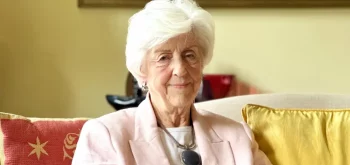Young people in the criminal justice system have particular needs. Research shows that young people may struggle to understand complex court proceedings and rely heavily on the advice of legal professionals. But some will inevitably have their cases handled by inexperienced solicitors, and with heavy caseloads, solicitors may not have the time to explain clearly what is happening. Confusion can be compounded by complex cases involving multiple young defendants, such as seen in ‘joint enterprise’ cases.
According to the Evidence-Based Lab at Exeter University, of the young people proceeded against in both the Youth and Crown Court (25,500 in 2019), 47% pleaded guilty at first appearance in the Youth Court and 58% in the Crown Court. Their study reveals that young people, like adults, are offered incentives to plead guilty, including reduced sentences. Such incentives could put pressure on young people to plead guilty and may result in the innocent also pleading guilty. Focusing on short-term benefits, young people may be easily swayed to plead guilty without fully considering long term consequences.
Both of these issues could lead to miscarriages of justice.
Just like adults, young people can appeal their criminal convictions or sentences. The question is whether they know about their right to appeal, and can they access support during the appeal process? Considering the number of young people going through the criminal justice system each year, and the challenges young people face, it is necessary to find out if young people are appealing their convictions and sentences and whether they have sufficient knowledge about the appellate system in England and Wales.
A new study at Northumbria University is focussing upon young people’s knowledge about the appeal process and the Criminal Cases Review Commission (CCRC), the support provided for young people during the appeal process and the role of stakeholders (legal professionals, Youth Offending Teams, CCRC). The study will involve getting the views of young people (under 18s) and also those of stakeholders, parents/guardians, and legal professionals working with young people. The study aims to fill the gap in knowledge around young people and appeals and seek to secure any improvements in processes and support required, to ensure that young people are able to access the appeal courts.
Researchers at Northumbria are calling for participants in England and Wales who were convicted/sentenced under age 18 to participate. This will involve answering a few questions on knowledge about appeals, CCRC and the support available during the appeal process. Confidentiality and anonymity will be ensured and participants can withdraw at any given point without giving any reasons. By participating in this study, you will be helping to benefit future generations of young people who may suffer a miscarriage of justice.
Anyone interested can contact the researcher via email: Judith.addo@northumbria.ac.uk







